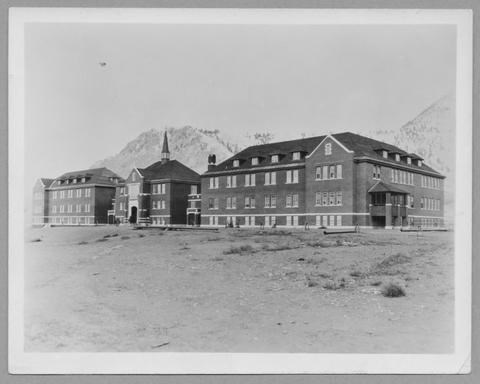The federal government has entered into an agreement with the National Centre for Truth and Reconciliation (NCTR) to hand over 750,000 residential school documents, Crown-Indigenous Relations Minister Marc Miller announced on Jan. 20.
“Canada has a moral obligation to survivors to pursue the truth and to ensure access to documents, school narratives and records, so important to healing, to closure, to education and preservation,” Miller said.
In October, the NCTR had criticized the Canadian government for failing to provide crucial documents detailing the histories of each government-funded, church-run institution that made up the residential school system.
The government claimed it couldn’t release the relevant documents at the time due to third-party agreements with Catholic entities, including the Sisters of St. Ann, Sisters of Charity of Providence of Western Canada, Sisters of the Presentation and La Corporation Episcopale Catholique Romaine De Prince Albert.
“To me as a survivor we have to acknowledge our shared history, where we’ve come from, where we’re at today and where is it we’re going to go into the future,” Garnet Angeconeb, a residential school survivor working with the NCTR, said at a news conference announcing the agreement.
“This is very important in that the records that will be handed over will be a way to get at the truth, to be able to tell our stories, to be able to validate and acknowledge where we have come from as survivors.”
Included in the records that have yet to be released are school narratives — reports that Ottawa has compiled detailing each individual institution’s history, including its information about its administration, the number of Indigenous children forced to attend it and key events, such as reports of abuse, CBC News reported.
With a memorandum of understanding between the feds and NCTR, the narratives of 11 schools will be included in the documents released. They are: Assumption Indian Residential School (IRS), Fort Vermilion IRS, Grouard IRS, Sturgeon Lake IRS, Kamloops IRS, Kuper Island IRS , St. Mary’s IRS, Mistassini Hostels IRS, Kivalliq Hall IRS, Fort George Anglican (St. Phillips) IRS, and Norway House (United) IRS.
These will be added to the 125 other narratives that the NCTR has in its possession.
There are no narratives or surviving documents for the residential schools at Lac La Biche, Lesser Slave Lake, St. Augustine and St Joseph’s.
Miller added that the federal government is conducting a review of all its internal documents on the matter to see which ones can be released while respecting the privacy rights of survivors, among other legal considerations.
“Families need this information,” Miller said. “They want to know, with certainty, the relevant records have been released and they have a right to that information. They have a right to know where their loved ones were taken.”
NCTR executive director Stephanie Scott said the release of these documents is an important step on the road to reconciliation.
“We must understand the shameful parts of Canada’s past in the spirit of reconciliation,” she said. “Today marks an important moment in our quest to find all the records.”
The number for the National Indian Residential School Crisis Line is 1-866-925-4419. British Columbia has a First Nations and Indigenous Crisis Line offered through the KUU-US Crisis Line Society, toll-free at 1-800-588-8717.
Jeremy Appel, Local Journalism Initiative Reporter, Alberta Native News





